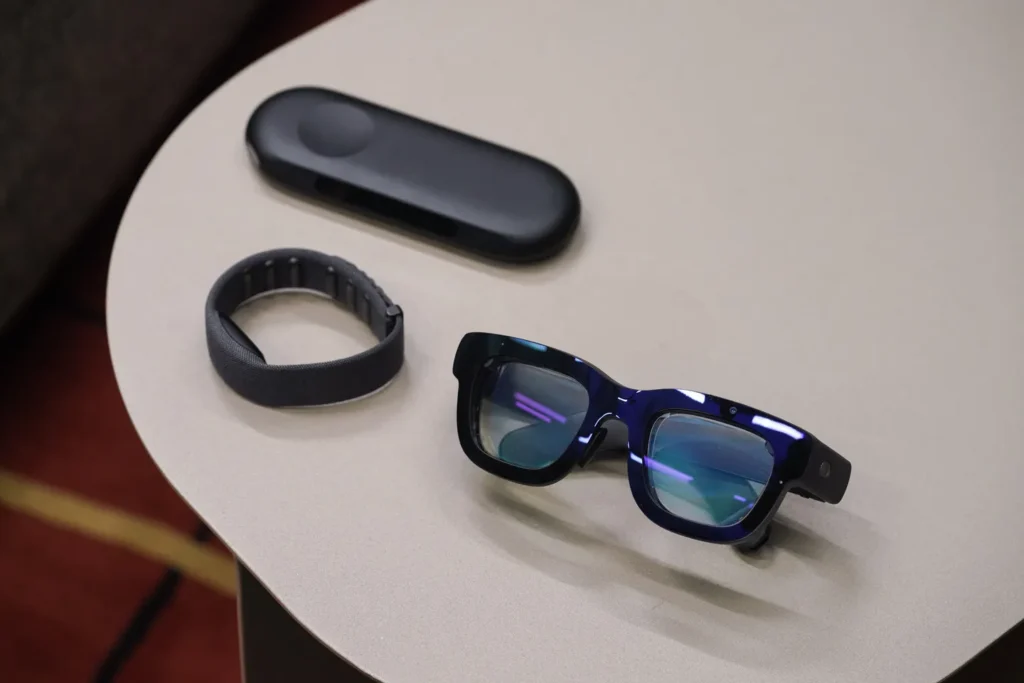Mark Zuckerberg’s company, Meta, has announced its first augmented reality glasses, called Orion, positioning them as the most advanced AR glasses on the market. These glasses are set to compete with Apple’s Vision Pro, showcasing some remarkable features that push the boundaries of AR technology.
One of the key highlights of Orion is its displays. These aren’t just ordinary screens; they’re MicroLED projectors embedded into the frame, projecting images in front of the user’s eyes using optical waveguides. This advanced display technology ensures a more immersive experience by covering more of the user’s field of view, with Orion offering a 70-degree field of vision, which surpasses many other AR devices currently available.

The lenses of the Orion glasses are crafted from silicon carbide, a material chosen for its strength and lightweight properties compared to traditional plastic or glass. Additionally, silicon carbide has a higher refractive index, allowing the light from the projectors to occupy more of the space in front of the user’s eyes, enhancing the overall visual experience.
For the frame, Meta has opted for magnesium, which is not only lighter than aluminum but also helps distribute heat more efficiently. Despite all these advanced features, the glasses remain relatively light, weighing just 98 grams.
To interact with Orion, users will wear a neural wristband that controls the device, along with a small block that contains the processing power. While the glasses can operate independently from a smartphone or computer, they do require proximity to the processor block to function.
The glasses also come equipped with Meta’s AI technology, offering real-time speech translation and providing contextual suggestions. For example, the AI can recommend recipes based on the ingredients available in your refrigerator. Orion allows for various control methods, including eye movement, hand gestures, voice commands, and more.
Currently, Orion is in its prototype phase, with Meta planning to refine aspects like display quality, software optimization, and price reduction before launching mass production. Though there’s still work to be done, Meta’s announcement indicates they are gearing up to compete directly with Apple’s Vision Pro and other AR devices, potentially reshaping the future of augmented reality.

